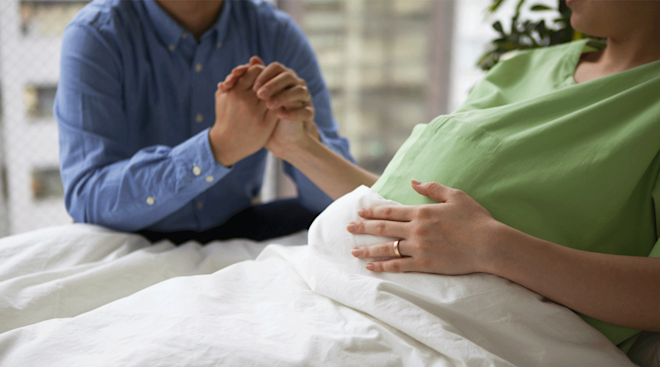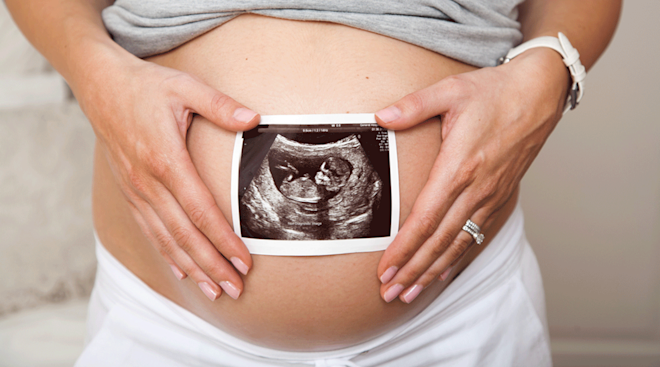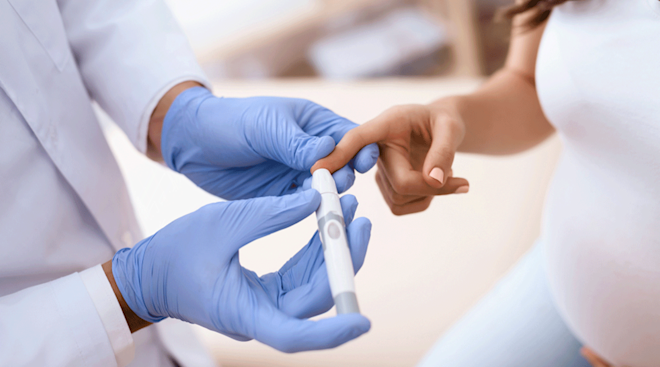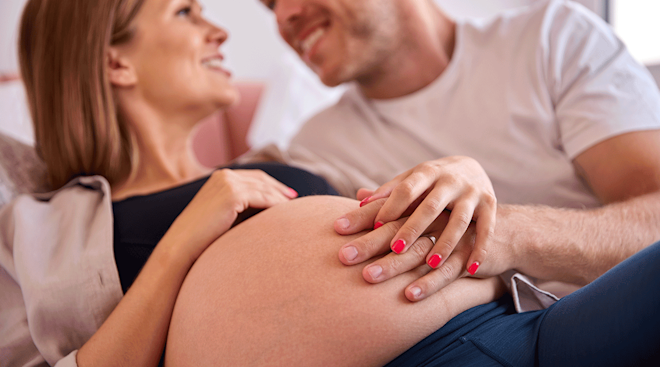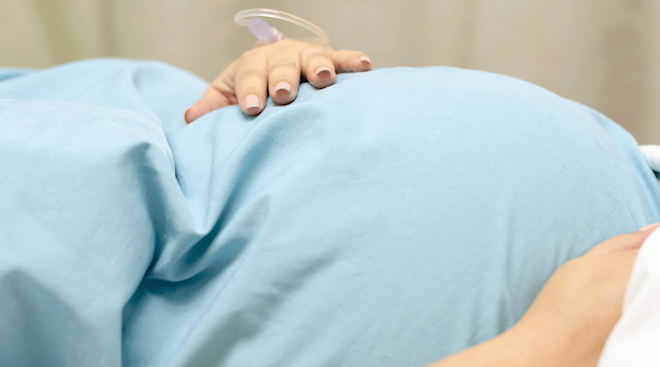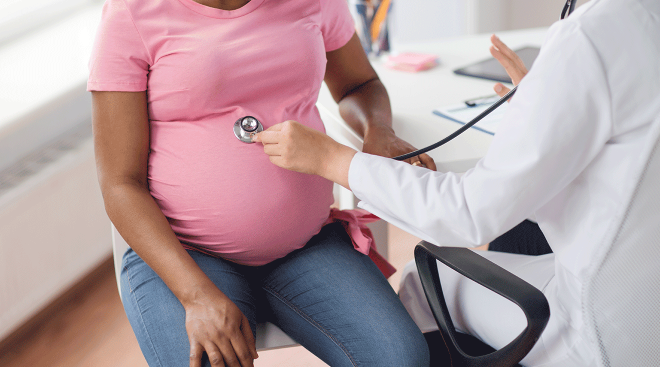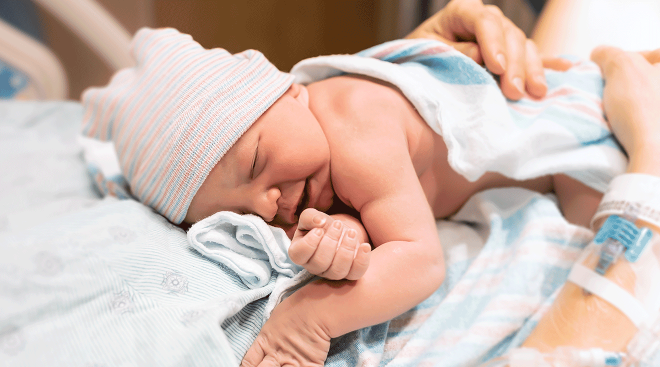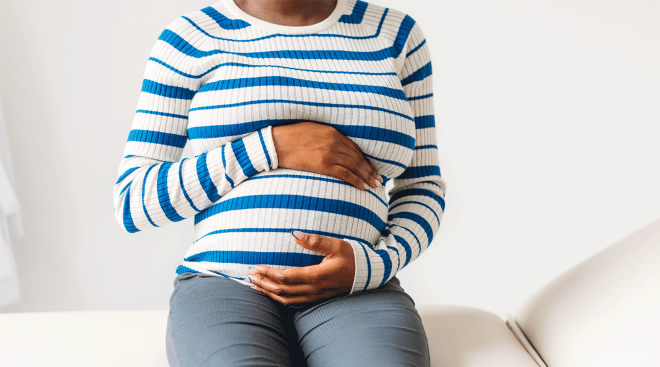What Is Bed Rest During Pregnancy—and Is It Recommended?
For some people, pregnancy is an easy time with little to no complications. For others, a situation may emerge that requires medical intervention or lifestyle changes. This may include going on bed rest during pregnancy (or activity restriction)—to try to ensure that you and baby remain healthy.
The concept of bed rest has evolved over time, and recommendations around this practice are quite different then they were even a few years ago. Here’s what you need to know about bed rest during pregnancy, including why it’s no longer a common recommendation for those facing complications.
Bed rest during pregnancy is a medical recommendation to restrict physical activity, explains Veleka Willis, MD, an ob-gyn at NYU Langone Hospital in Brooklyn. “It involves limiting movements and avoiding strenuous activities that may put additional strain on the body,” she says.
“Historically, bed rest was used as a therapy for several complications of pregnancy,” says Julie Lamppa, APRN, a certified nurse midwife at Mayo Clinic and co-author of Obstetricks: Mayo Clinic Tips and Tricks for Pregnancy, Birth and More. “Preterm labor, preterm rupture of membranes and hypertension were on top of the list.”
Types of bed rest during pregnancy
There’s a range with bed rest during pregnancy. Sometimes the term is used more loosely, and simply signals some level of activity restriction. In rare instances, doctors may recommend that an expectant mom spend most of her time in bed, Willis explains. “The recommendation for bed rest depends on the specific circumstances and needs of each individual pregnancy,” she says.
- Partial bed rest (aka modified bed rest). This involves limiting certain activities while allowing some degree of mobility and independence. “It typically entails avoiding strenuous activities that may put additional strain on the body, such as heavy lifting, prolonged standing or vigorous exercise,” Willis says. “However, expectant moms on partial bed rest are still able to engage in light activities.”
- Full bed rest. This form of bed rest is also known as “strict bed rest,” Willis says. It requires the expectant mom to spend a significant amount of time lying down or reclining. “It involves avoiding any activities that require standing or sitting upright for extended periods,” Willis says. “This includes limiting physical movements, such as walking, climbing stairs or performing household chores.The intention of full bed rest is to minimize physical exertion and maximize rest.”
The concept of bed rest has been around for a long time, but, nowadays, it’s not commonly recommended. In fact, the American College of Obstetricians and Gynecologists (ACOG) says that it’s not suitable for most pregnant people. ACOG notes that there’s no scientific evidence that bed rest prevents preterm labor or reduces the risk of preeclampsia (high blood pressure in pregnancy). The organization also points out that being completely inactive can increase the risk of health problems like blood clots.
“Over time, research has shown that bed rest during pregnancy is not actually beneficial, so its use is extremely limited now,” Lamppa says. But she stresses that this doesn’t mean that doctors will never recommend it. “Providers do have varied practices, and some may recommend a modified form of bed rest in some situations,” Lamppa says.
Some women may also need to be hospitalized during pregnancy until their baby is born for careful monitoring and quick access to healthcare, Lamppa notes. “Being confined to a hospital room for days to weeks can certainly have the feel of bed rest,” she adds.
Modified activity may be recommended for a range of health conditions where there are concerns about your health or the well-being of baby, Willis says. Those can include:
- Preterm labor risk. Modified activity may be recommended if you’re at risk for preterm labor or have a history of preterm birth. “This is aimed at helping to prolong the pregnancy and allow for further fetal development,” Willis says.
- High blood pressure or preeclampsia. Modified activity may be recommended if you have a condition like gestational hypertension or preeclampsia to manage blood pressure levels and reduce the risk of complications, Willis says.
- Carrying multiples. Being pregnant with more than one baby “puts additional strain on the body, increasing the risk of premature labor or other complications,” Willis says. Your doctor may suggest that you modify your activity “to alleviate stress and promote longer fetal development,” Willis says.
- Placenta-related concerns. In cases of placenta previa—when the placenta partially or completely covers the cervix—or there are concerns about placental insufficiency, modified activity can help improve blood flow to the placenta and reduce potential risks, Willis says.
- Fetal growth concerns. If there are worries about intrauterine growth restriction (IUGR) or insufficient amniotic fluid, Willis says that modified activity may be suggested to promote better circulation and enhance baby’s well-being.
- Cervical insufficiency. If your cervix shortens prematurely, your doctor may recommend modified activity to reduce the pressure on the cervix and help prevent preterm labor, Willis says.
There isn’t a one-size-fits-all approach to activity restriction. “The specific recommendations for bed rest [or activity restriction] depend on the healthcare provider’s assessment of the pregnancy risks, the mother’s overall health and the needs of the developing baby,” Willis says. “It’s tailored to the individual situation, and healthcare providers may adjust the level of activity restriction based on ongoing monitoring and evaluation.”
What you can do on activity restriction
Again, it depends on what your doctor recommends. However, Wills says you can generally do the following while on activity restriction:
- Rest and sleep
- Shower
- Use the bathroom
- Read and relax
- Work or study
- Do light stretching and gentle exercises, potentially in bed
Willis says that it’s “crucial” to follow your doctor’s specific instructions. “Communication with healthcare providers is vital,” she adds.
What you can’t do on activity restriction
It’s also important to talk to your doctor about what you can’t do on activity restriction or bed rest during pregnancy. They’ll likely have specific recommendations for you. However, Willis says that restrictions may include:
- Strenuous physical exercise
- Sex
- Household chores
- Driving
- Traveling
- Sitting for long periods of time
Willis notes that activity restriction can come with a slew of challenges, including:
- Boredom
- Depression
- Anxiety
- Difficulty caring for other kids
- Worries about the baby
- Difficulty working
Every situation is different but those who have been through activity restriction say it can be tough. Mom of one, Jessica Sproat, says she was on activity restriction in a hospital for eight weeks after her water broke 23 weeks into her pregnancy. “It was traumatizing and calm, all at the same time,” she says. “I was grateful to be in hospital so I didn’t need to feel anxious about something happening unexpectedly with baby, as I was under constant monitoring.” Sproat says she was also able to rest a lot, given that she didn’t have other children at the time. Still, she says that she was “bored” and “really missed being outside.” She delivered her son at 31 weeks. “My son was in the NICU for two months after he was born,” she says. “With lots of ups and downs, I came home with a healthy baby. That baby is now 5 years old, and truly is a joy.”
Ali R. Thome was hospitalized and on activity restriction for six weeks before her daughter was born due to vasa previa, a condition that can lead to severe blood loss for baby. “The experience was complicated,” she says. “I kept an illustrated diary of my stay and compiled it into a book detailing each day I was in the hospital.” Thome says she felt “exhaustion” during her stay.
Bed rest during pregnancy or modified activity restriction can be tough, but there are a few things you can do to make the most of your time. “Have friends and family load you up with projects and books to keep you occupied,” Lamppa advises. “Craft something for baby’s room. Binge a new TV series. Invite people to visit often, assuming you feel up to it. You need to listen to your provider because only they know your situation, but moving your body in a safe way is very important, so do what you can.”
Sprout says the hospital where she stayed created groups of pregnant people in similar situations. She ended up having tea with other moms-to-be. She also learned to crochet with the help of a hospital volunteer, and, yes, she watched a lot of TV.
Nebraska mom, Jessica Clark, says she was on restricted activity for the last few weeks of her pregnancy with her now-11-year-old son. “I actually really enjoyed bed rest. I got really big in my pregnancy and didn’t feel well or feel like doing anything, so being forced to stay in bed was great!” she shared. “All day, I would pretty much play around on my laptop or phone, binge-watch Netflix, and get food delivered to my door.”
While bed rest during pregnancy isn’t frequently recommended, it’s more common in situations where you need to be hospitalized. “Be patient with yourself, seek support when needed and focus on maintaining a positive mindset,” advises Willis.
Please note: The Bump and the materials and information it contains are not intended to, and do not constitute, medical or other health advice or diagnosis and should not be used as such. You should always consult with a qualified physician or health professional about your specific circumstances.
Julie Lamppa, APRN, is a certified nurse midwife at Mayo Clinic in Rochester, Minnesota, and the co-author of Obstetricks: Mayo Clinic Tips and Tricks for Pregnancy, Birth and More.
Veleka Willis, MD, is an ob-gyn at NYU Langone Hospital in Brooklyn and a clinical assistant professor at NYU Grossman School of Medicine. She earned her medical degree from SUNY Downstate.
American College of Obstetricians and Gynecologists (ACOG), Will I Need Bed Rest Near the End of Pregnancy?, November 2020
Learn how we ensure the accuracy of our content through our editorial and medical review process.
Navigate forward to interact with the calendar and select a date. Press the question mark key to get the keyboard shortcuts for changing dates.

































